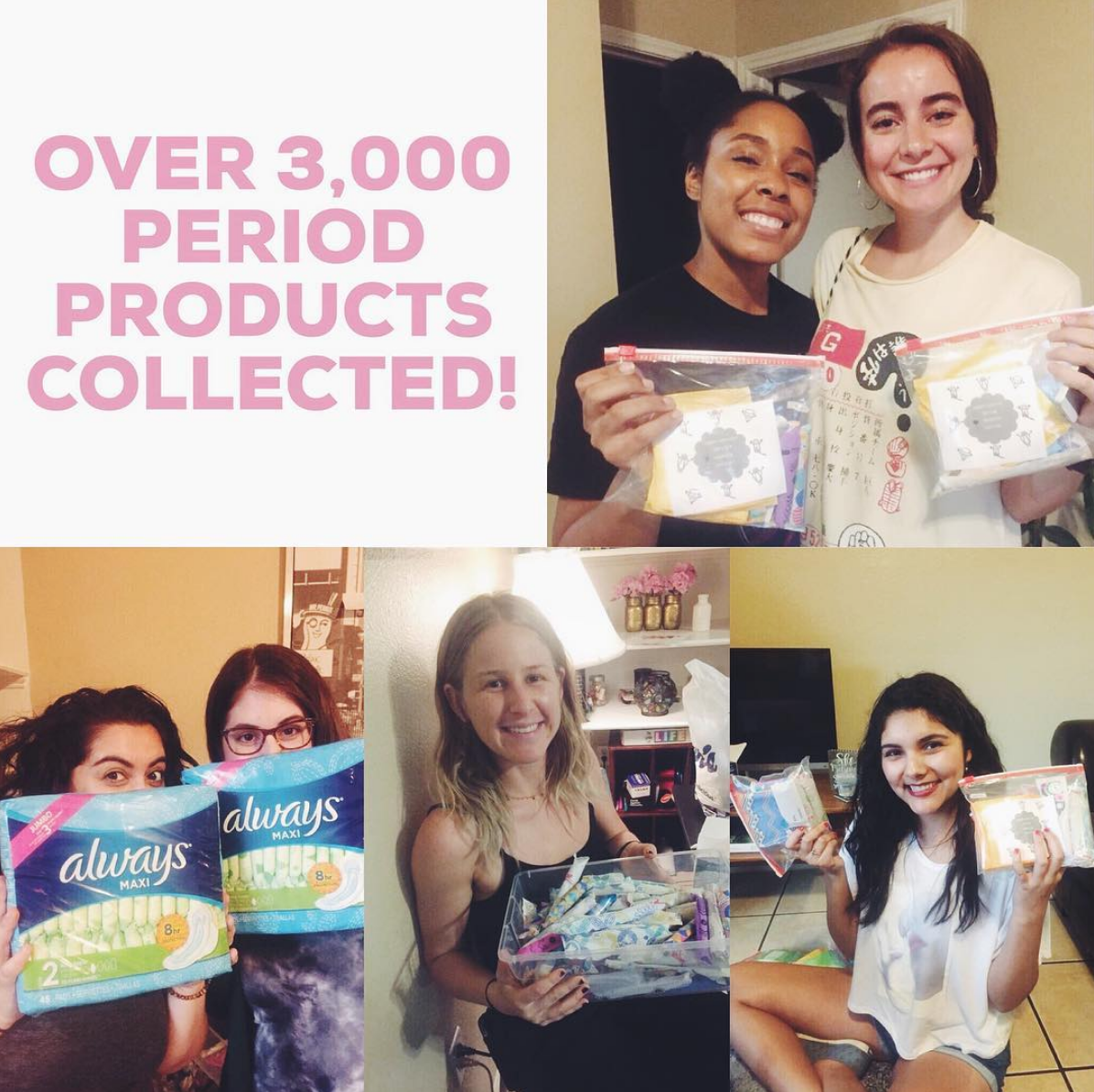From March 26 through April 6, Students for Planned Parenthood (SPP) at the University of Texas at Austin held a menstrual, feminine and period product drive in an effort to provide women in the greater Austin community access to such products.
Story by Ashley Nava
Photos courtesy of Instagram, Students 4 Planned Parenthood
“For menstruating and non-menstruating individuals, the idea of access to feminine hygiene products is a universal concern. Because for many people, shame and humiliation can come from not having immediate access to these products,” government and theatre performance sophomore and lead coordinator of SPP Carleigh Newland says.
Using the hashtag “Pads4Empowerment”, Newland hoped this would inspire others who want to make a difference but don’t know how to participate. “There is constantly legislation that infringes upon women’s reproductive freedom and that of other individuals as well, and we wanted to find a way to address this,” Newland says. “Faced with that anger, you want to do something, and this is something that we thought students could participate in and see a physical way to address the issues.”
In their effort to end this stigma, SPP partnered with Flo Code, an Austin-based non-profit formally known as the Homeless Period Project ATX. “We realized that it’s not just homeless women who have a hard time gaining access to these products,” Flo Code founder Lamanda Ballard says. “With us starting the non-profit, we realize that there are girls in all school levels that don’t have access to these products. They are constantly requesting them but not getting enough donations, which is where we come in.”
For Newland, gaining visibility is the first step toward addressing the issue. With donation boxes spread throughout women’s and gender neutral bathrooms, students began to take notice. “I have watched students walk in the GSC (Gender and Sexuality Center) with boxes of tampons and it warms my heart,” says Nikki Lopez, a history and Mexican American studies junior. “I believe that student-led initiatives are important ways to showcase the lack of accessibility to products for homeless menstruating folks.”
Newland hopes that the project also inspires movement or legislation that changes the availability of menstrual products on campus. “Hopefully this also sparks talk on how the university could go about putting more products in our bathrooms so we as students don’t have to go through that,” Newland says.
A total of 3,806 products were collected and put into 252 bags to be donated to those who do not have access to necessary menstrual products.












































